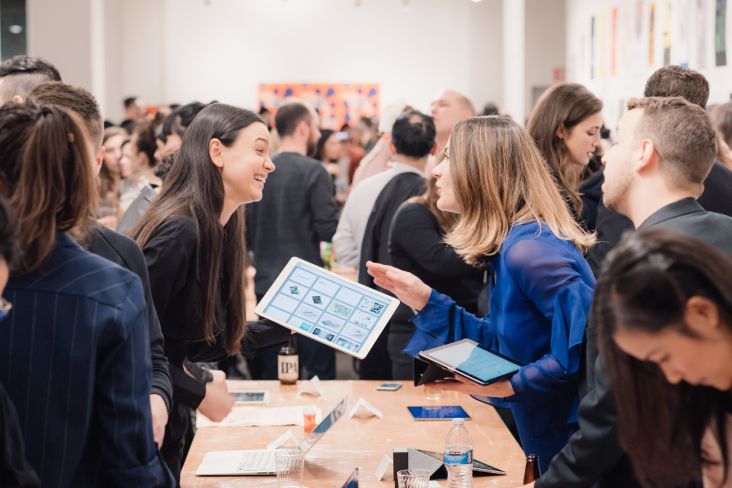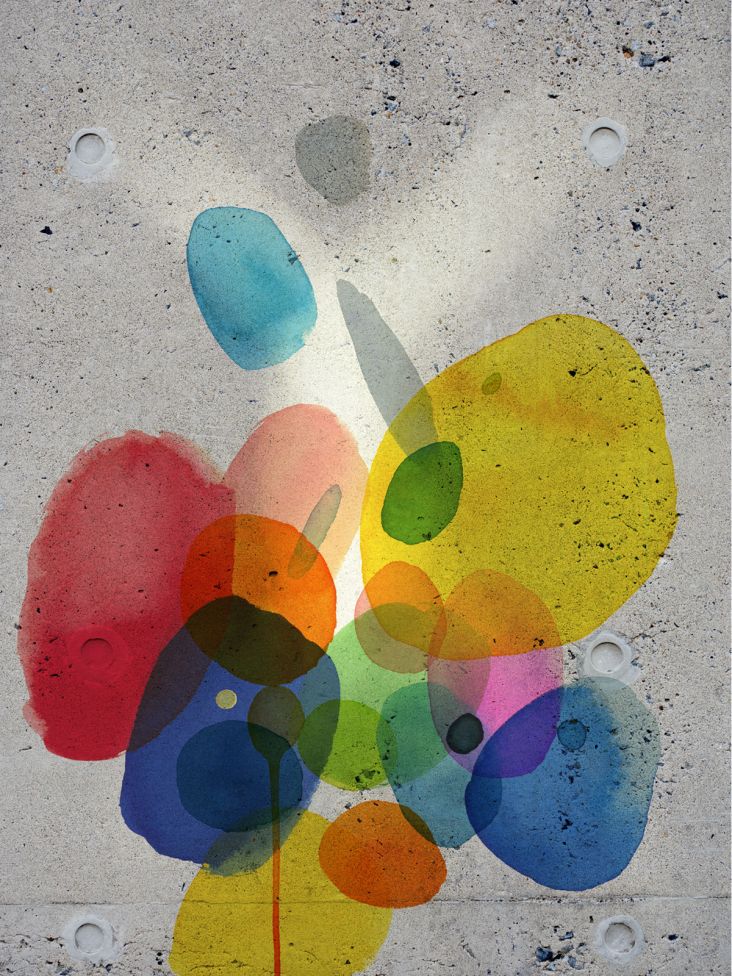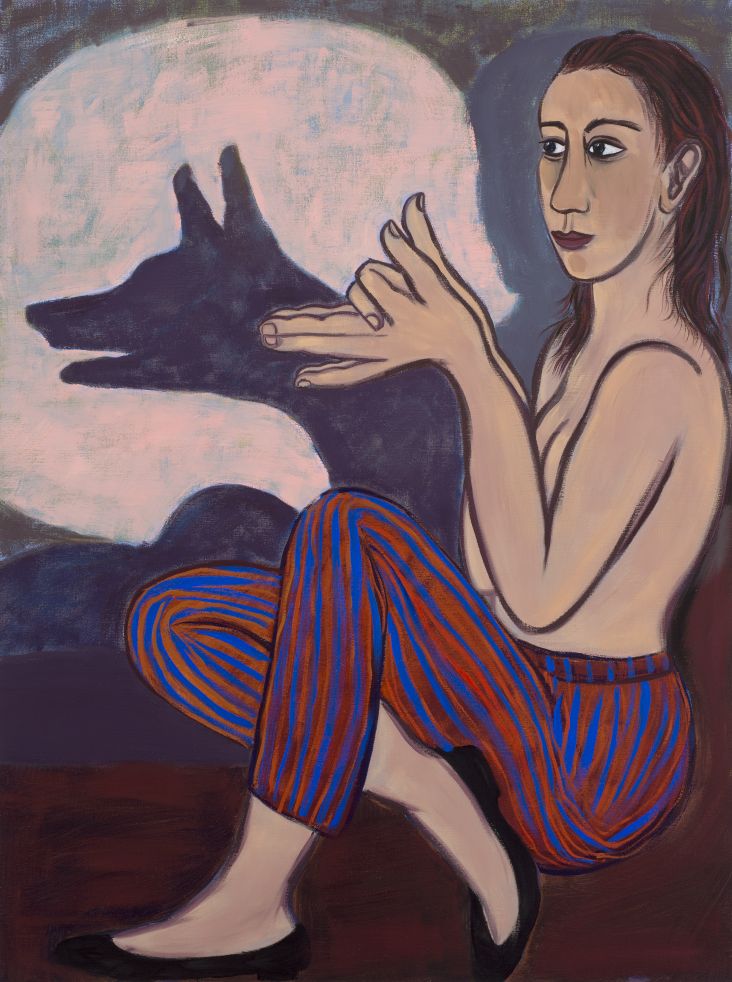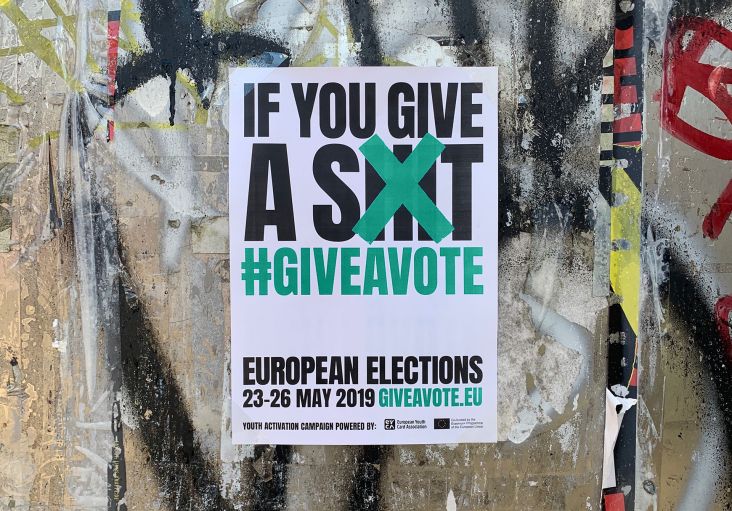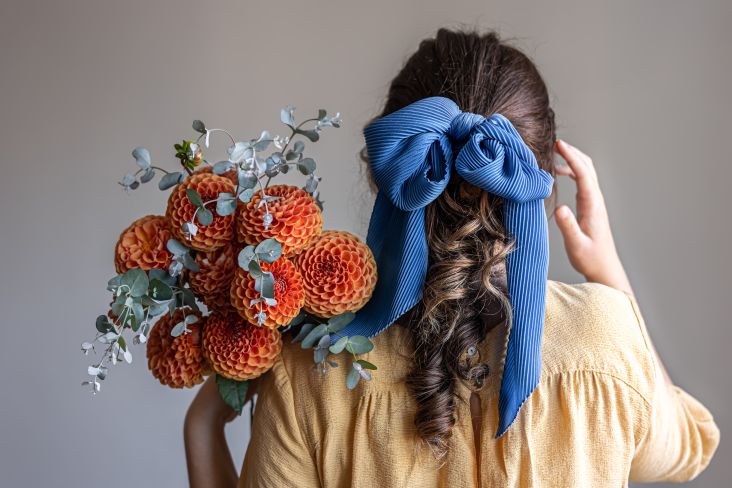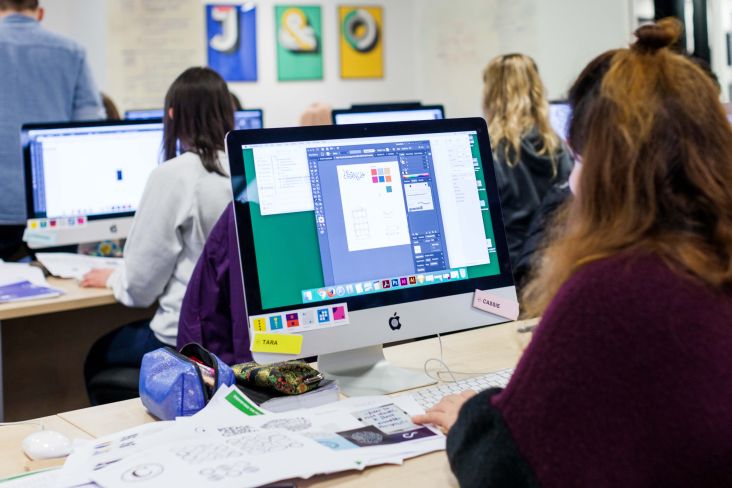No-nonsense freelance tips from leading creatives to help you run a better business
Whenever we interview someone for Creative Boom, we always like to ask their advice for people starting in business.
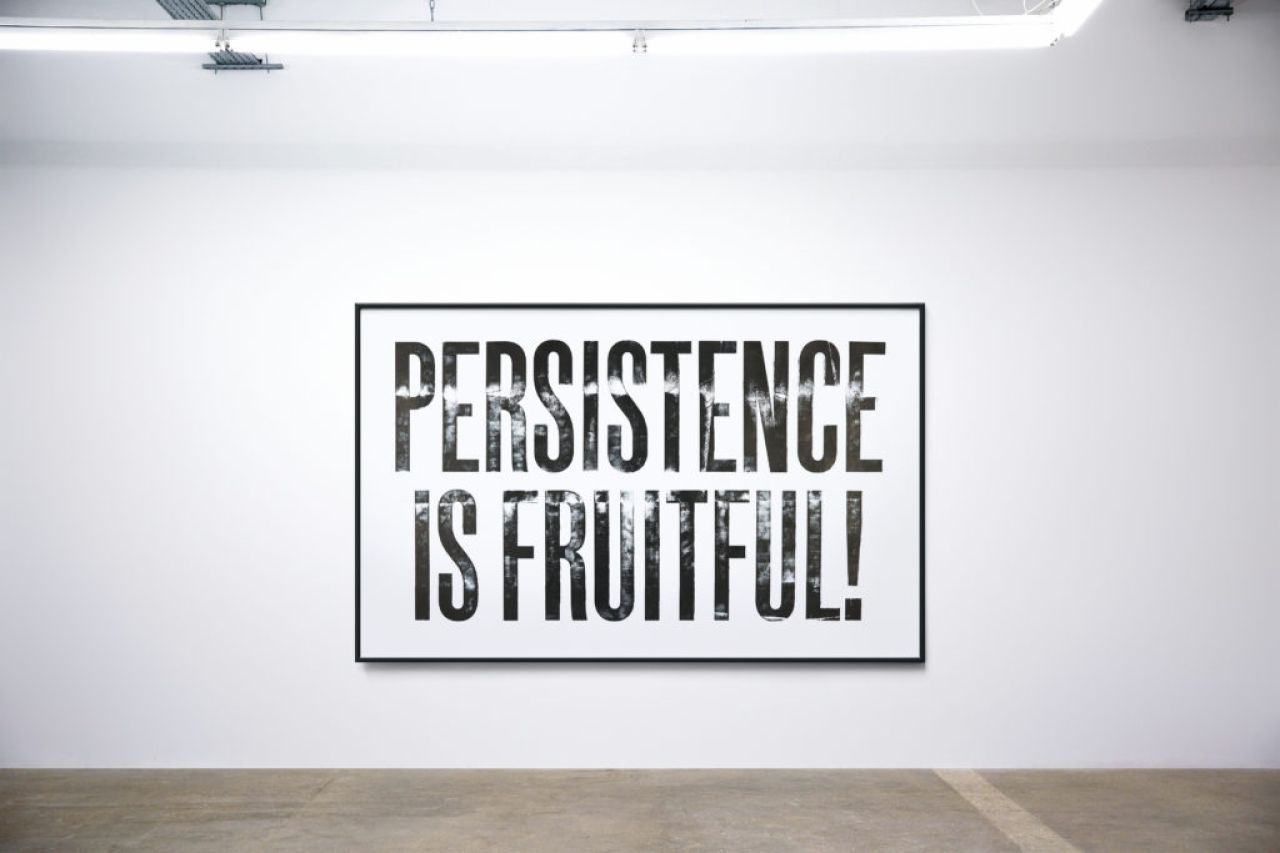
Image courtesy of Anthony Burrill
It doesn't matter whether they're at the top of their game or fresh on the scene; everyone has something valuable to share with our audience. From going freelance and surviving those first years to embracing change and remembering to rest, we've got some excellent nuggets of wisdom that will help you run a better business.
We've dived into our extensive archives to find advice from names as big as Aaron Draplin and Debbie Millman to Morag Myerscough and Anthony Burrill – all of whom have been where you are today.
Have passion and purpose
Running a business can be challenging. If you're going to survive any potential storms headed your way, you need to have some built-in strength and determination. You need to have passion, as it will give you an unwavering purpose.
"I think if you draw and that feels like the only thing you want to do with your life, then you won't even think twice about it; you'll be an illustrator. I don't think it's a career path as such. I think it happens naturally," says illustrator Jean Jullien.
And he's right. If you're determined to run a successful business, you'll make it happen. No matter what.
"You need to remain resilient and focused on what you want to become," adds designer Craig Black. "My belief – and the reason why I started as an independent designer – got me through so many tricky situations, and I will always rely on that going forward."
Always try and do what you love
Do what you love. I can't stress this enough. "It is important to reassess continually and to enjoy your work," agrees Morag Myerscough. "If you really hate it, don’t do it – do something else. I spend a lot of time observing everything around me and how I can do work that responds to our world. If you want or feel you need to be part of a tribe, that is great. But if not, don’t worry. It just might not exist yet but does that matter? Don’t be afraid to go your own way."
Big personality and designer across the pond, Aaron Draplin adds: "Keep it fun. There will be more than enough turds who are in the business of making things 'un-fun'."
Graphic artist and podcaster, Ben Tallon believes doing what you love shapes everything: "Embrace your inner weirdo and explore the things that you do for pleasure, with passion. Individuality is the ultimate currency in this industry, and nobody can replicate your journey."
Don't be afraid of hard work
You don't want to hear the word "hustle", and you'd quite like a work/life balance, thank you very much. But if you're going to launch and run a successful business, then I'm afraid a little sacrifice will go a long way in those first 18 months.
"It really comes down to hard work – and time," says illustrator Gemma Correll. "It takes a while to get your work seen by a broad audience, but social media is helpful in that respect.
"Make sure you maintain a good website, with links to your social media sites. Keep those sites updated with new work as much as possible, not just finished work but sketches too (I find that people love to see work in progress and sketchbook scribbles). Always make sure to put your name on your work so that it can be traced back to you."
Besides, there's no excuse. You can't just wait for things to happen. "When you start, you might not have clients as it’s difficult to get them, but we are creative people, and we have the tools to do it," says Verònica Fuerte, founder of Hey. "We can invent projects or create new ones, or you can create your own things even if you have no clients."
Listen to your gut
As a freelancer, you're pretty much on your own. You'll have to make decisions like never before. This is where your gut becomes a true friend. Listen to it. If something doesn't feel right, then it's probably your intuition telling you to pass go.
"Speak up, stand out, and if something doesn't feel right to you, don't do it," warns Andy Wright of Never Not Creative. "You are about to embark on a career that can change lives, fortunes and opinions. It's a great opportunity. Just make sure that it's always changing you for the better, not vice versa."
Find your niche
If you're going to beat the competition and win clients, you're going to have to figure out what makes you stand out. "Nurture your uniqueness," says Araki Koman. "Your obsessions and imperfections, as well as your own journey, are your force. Feel free to relentlessly tap into these personal qualities to create your own body of work, before seeking any external inspiration."
French illustrator Agathe Singer agrees. She believes you have to continuously create to find your niche: "Draw, paint or create every day in order to find your own style and voice and share your work with others as it can help you grow a lot and gain visibility to potential clients."
Doodle bomber Hattie Stewart adds: "Make a mess, be a mess – take advantage of opportunities and connections around you. If you feel there aren’t any available to you, just do your thing, find your little corner of the world and make the most of it. If people don’t understand you or your work today then that’s ok – you still have tomorrow."
Embrace change
I'm not sure what it's like elsewhere in the world. Still, in my tiny corner of Manchester, if you try something and then change it, people often see that as a sign of failure rather than what it actually is – which is you having the guts to try something out and the wisdom to know when to change it.
"Start something and keep doing it," says Anthony Burrill, much-loved graphic artist, print-maker and designer. "If something hasn't worked out after three months, don't give up. Keep going. Success doesn't come overnight. Equally, if something isn't working, don't be afraid to change direction. Whatever you do, never stop putting your work out there and always make an effort to meet new people."
Always do your very best
"Do good work," advises Milton Glaser, one of America's most illustrious graphic designers. "It's advice my junior high school teacher once told me after he understood that I was not going to be a scientist. I had chosen the road of art. Nevertheless, he gave me a box of contact crayons and told me 'do good work'. Those words have never diminished in my mind."
And how do you do good work? You never stop learning; that's how. "Make yourself as interesting as possible," advises Jason Little, founder of For The People. "Read a million books, make stuff because you’re interested, create a podcast, paint, have hobbies, learn languages or play an instrument, expand your mind and get involved, have the initiative and drive to turn thought into action."
Take risks to build courage
We all know that putting ourselves out of our comfort zone builds confidence. Whether it's standing up in front of 100 people to talk about our work or pitching to a new client, the more we experience these "difficult" situations, the more confident we become.
"Confidence is achieved through that willingness to put yourself in vulnerable situations. Success or failure has nothing to do with it," says Debbie Millman. "I know people who launched a startup that tanked, had their art project excoriated by critics or went through a difficult breakup, yet they’re still confident; they see the experience as something that helped them along their path, and they remain willing to continue on it."
Debbie adds: "Courage is the foundation for authentic confidence. Taking the first step creates courage which will grow with every repetitive step you take."
Don't sweat the small stuff
In the Instagram era, it's easy to get bogged down with anxieties on whether our work is good enough. It's not surprising when we're comparing ourselves to the entire world.
Artist and doodler, Jon Burgerman says the trick is to chill: "Don’t worry so much. You think everyone cares about what you’re doing, but actually, they’re all too busy caring about themselves. You are not that important! With that in mind, there’s less pressure on you than you think, so relax and try and have fun! When you’re having fun, you’ll be loose and freed up to make something good."
And if we make mistakes? "I think you have to have those awkward times, confusing times, times when you get everything wrong, to shape who you are," says Gavin Strange of Aardman Animations.
Remember to enjoy time off
"Take a step back. You are not a brain surgeon or a rocket scientist. You are helping someone sell a can of fizzy water, toilet paper or haemorrhoid cream. It’s only advertising, nobody dies. Take a fucking vacation!" These the words of Paul Woods, designer, writer, illustration and CCO of Edenspiekermann.
And when you're not enjoying a holiday somewhere in the sun, remember that daily downtime is just as important. That means leaving your phone on charge in the kitchen and getting away from your desk.
"Work hard but take time off too, self-care is important," says paper artist Helen Musselwhite. "I’m only just realising this and allowing myself to take a break and not feel guilty.
"Burnout is a real problem. A project I worked on last summer non-stop for a month really took its toll both physically and mentally. Don’t get me wrong, it was a great project, and I was pleased with the work I produced, but it was intense and relentless, and I worried way too much about it. But guess what! It turns out I didn’t need to… so lastly I’d say be kind to yourself."
Don't take life too seriously
Above all, remember the wise words of Studio.Build's Michael C Place: "I've learnt that life is too short to work with arseholes. That all designers are wankers. That all printers are tossers. And the best ideas generally include the drinking of beer and the eating of pies."




 by Tüpokompanii](https://www.creativeboom.com/upload/articles/58/58684538770fb5b428dc1882f7a732f153500153_732.jpg)

 using <a href="https://www.ohnotype.co/fonts/obviously" target="_blank">Obviously</a> by Oh No Type Co., Art Director, Brand & Creative—Spotify](https://www.creativeboom.com/upload/articles/6e/6ed31eddc26fa563f213fc76d6993dab9231ffe4_732.jpg)









